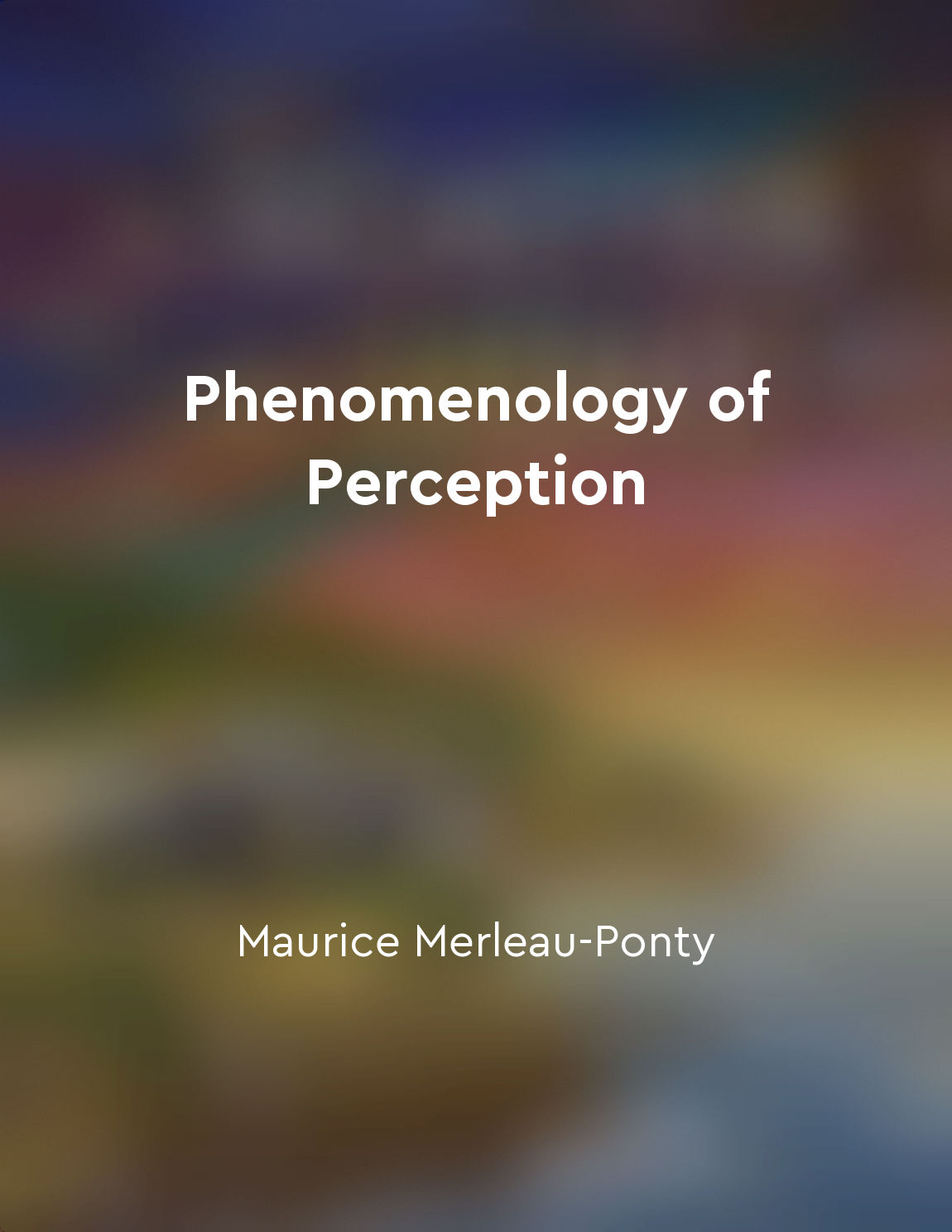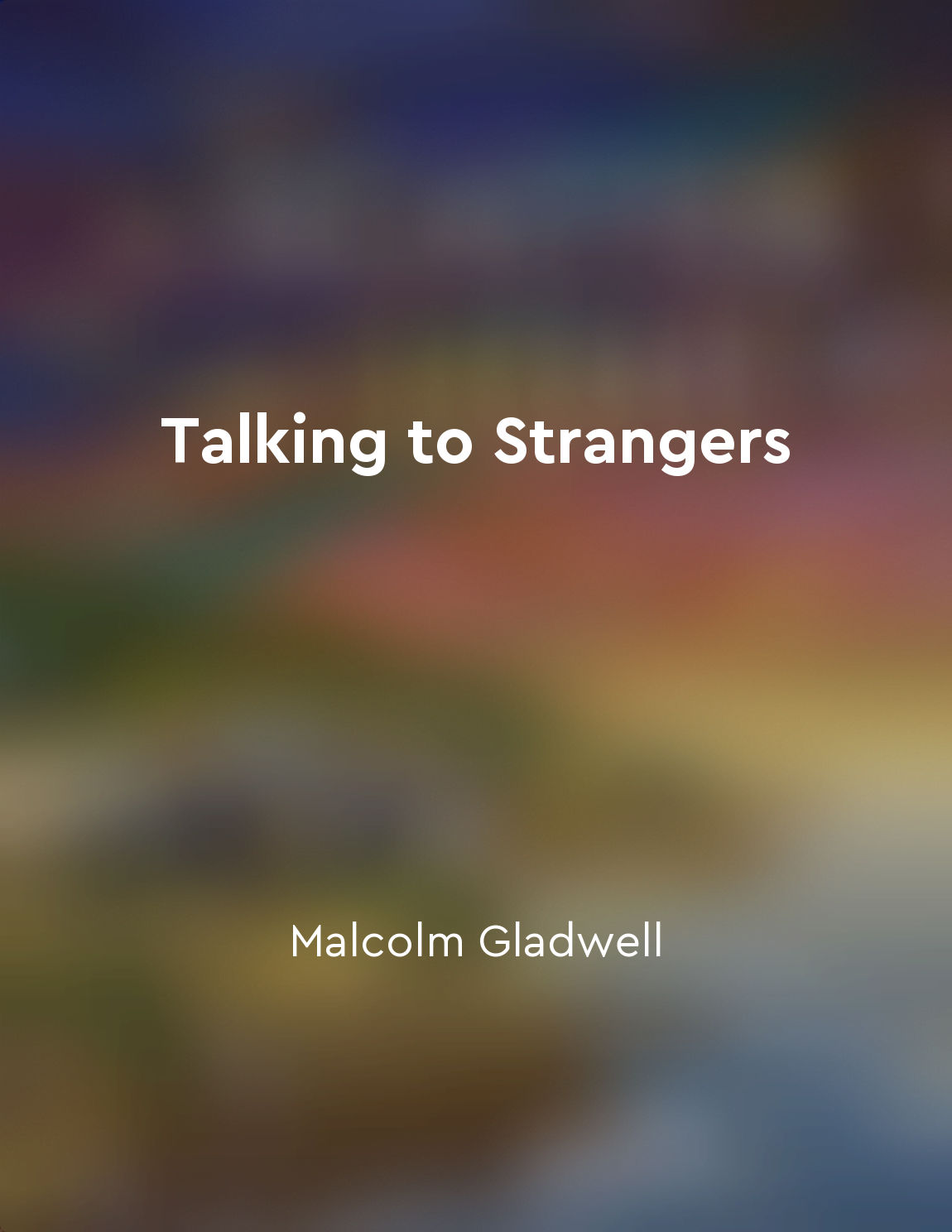Context plays a crucial role in understanding strangers from "summary" of Talking to Strangers by Malcolm Gladwell
The way we perceive strangers is heavily influenced by the context in which we encounter them. Context shapes our understanding of people who are unfamiliar to us, often leading us to make assumptions based on incomplete information. We tend to rely on stereotypes and generalizations when interacting with strangers, as we lack the necessary background knowledge to accurately assess their intentions or behaviors. Context also affects our ability to interpret nonverbal cues and signals when communicating with strangers. Misunderstandings can arise when we fail to consider the specific circumstances in which a person is expressing themselves, leading to errors in judgment and miscommunication. Our preconceived notions and biases can cloud our judgment, making it difficult to truly understand the motivations and emotions of strangers. Furthermore, the way we perceive strangers is influenced by the social and cultural norms that govern our interactions with others. These norms shape our expectations of how people should behave in different situations, often leading us to misinterpret or misjudge the actions of strangers who do not conform to these norms. Our inability to adapt to unfamiliar contexts can hinder our ability to accurately assess the intentions and behaviors of strangers. In order to communicate effectively with strangers, it is important to consider the role that context plays in shaping our perceptions and understanding of others. By being mindful of the influence of context on our interactions with strangers, we can avoid making hasty judgments and assumptions based on limited information. Taking the time to consider the specific circumstances in which we encounter strangers can help us to better understand their perspectives and motivations, leading to more meaningful and authentic connections.Similar Posts
Pay attention to physical cues such as posture and gestures
When engaging with others, it is crucial to be attentive to the physical cues they exhibit. These cues can provide valuable ins...
Be mindful of nonverbal communication cues when interacting with others
Nonverbal communication cues play a crucial role in our interactions with others, often conveying more meaning than words thems...
Practice empathy and compassion to foster meaningful connections with those around you
To truly connect with others on a meaningful level, you must practice empathy and compassion. Empathy involves putting yourself...
Cultural differences can impact interpretations of body language
Cultural differences play a crucial role in how individuals interpret body language. One must understand that what may be consi...

Posture reveals emotions
Body language can be a powerful window into a person's innermost feelings and emotions. One of the key aspects of body language...
Culture influences communication patterns
Culture deeply shapes how people communicate with one another. The way individuals speak, express themselves, and interpret mes...

There is no true separation between mind and body
The traditional concept of the mind-body dualism has long been a cornerstone of Western philosophy, with Descartes famously pos...
Practice assertiveness to strengthen your communication skills
One key aspect of effective communication is the ability to assert oneself confidently and respectfully. Assertiveness involves...
Communicate with authenticity to build trust
When you communicate with authenticity, you are being genuine and true to yourself. This means that you are not trying to be so...
Recognize the power of framing in language
Framing is a powerful tool that can influence how people perceive information. By choosing the right frame, you can shape the w...

